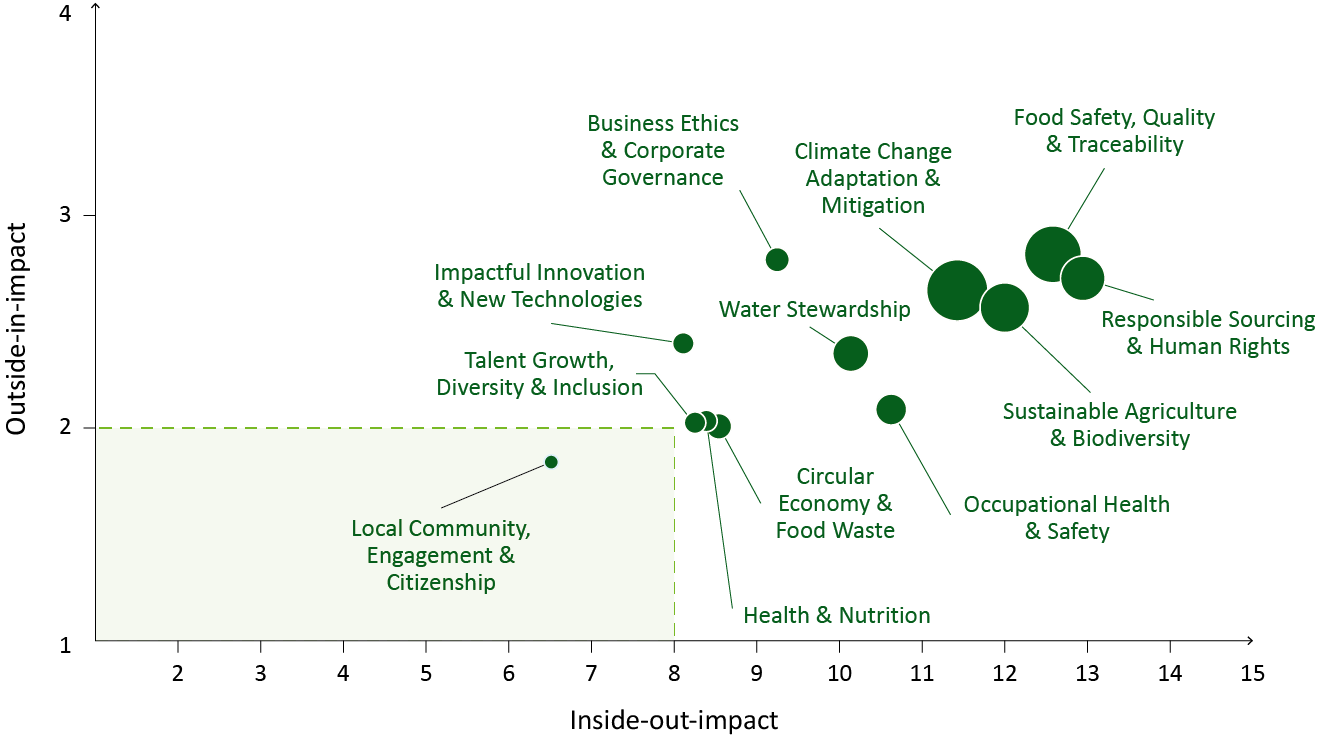
At the beginning of 2022 Greenyard has developed a new materiality matrix to identify and prioritise the ESG issues that are most impactful and matter most to our stakeholders today. The development was conducted by a specialist consultant in this field. The double materiality assessment was an important milestone in our sustainability roadmap as its confirms our strategy and sharpens the key targets we are working on.
The assessment took into account our own impact on people and the environment as well as the sustainability issues that affect our business, which is referred to as double-materiality. The main topics have been identified by analysing relevant third-party ESG ratings, disclosure standards and trend reports, analyses of reports by peer companies and the existing analyses and documentation of Greenyard. Interviews with selected customers, suppliers, growers and management and by-proxy workshops completed the assessment. The result is a new materiality matrix that has a clear link to our sustainability model.
We also re-mapped the material topics against our risk and opportunity framework and the Sustainable Development Goals (SDGs). We decided to keep the focus on the five SDGs we selected in the Sustainability Roadmap we introduced last year. SDG 17 on partnerships could be seen as an extra SDG to be added, however we see this as a pre-condition to reach our goals and an approach we clearly take into account in the way we do business.
We will monitor all the material topics either from a sustainability perspective or a business and risk perspective. The business and risk perspective is reported primarily in our annual report, while the sustainability perspective is included in our sustainability report. As of next year the timing of these reports will be integrated.
The assessment confirmed our strategy and will not change the key commitments and targets for 2025. Based on the materiality assessment, we will develop and publish a policy on sustainable agriculture before the end of 2022. Although we already take into account a wide range of topics related to sustainable agriculture, we do not have a specific group policy yet with regard to biodiversity. Whereas climate action is a key component of our sustainability strategy, we are improving our understanding on climate change sensitivity and started conducting scenario-analysis trials on one of our supply chains. Another topic that will be crucial to accelerate our strategy is talent attraction and development which is in full focus of our HR department. Within the materiality assessment we have also integrated the latest information on the EU Taxonomy and the new EU Corporate Sustainable Reporting Directive (EU-CSRD). The set-up of our current report already reflects this way of thinking.
